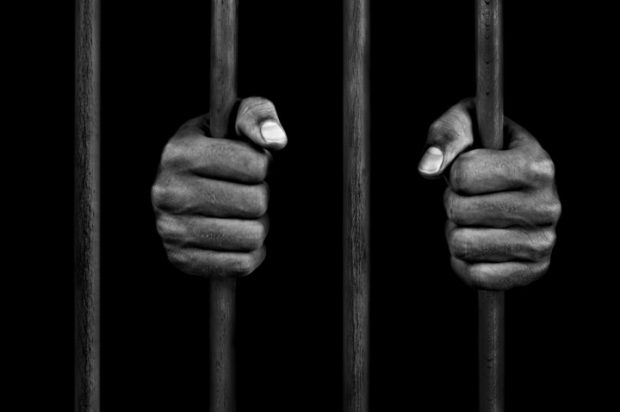A recent report claimed that about 1,933 Nigerians are languishing in jails in different parts of India for offences ranging from rape, theft, internet fraud, drug offences, kidnapping, and violation of visa and immigration laws.
The list of Nigerians in foreign prisons is not exhaustive, as the ugly development is found in practically all parts of the world. But the situation appears worse in Asian countries, where some ill-advised Nigerian citizens have taken to an attitude that does not represent the Nigerian ideal of hard work, perseverance and diligence.
There are exceptions, where some get into trouble in foreign lands due to ignorance, but many are wilful criminals and desperate to shortchange the system in their host countries for quick gains.
Nigerians reportedly constitute some inmates in Indonesia, Malaysia, China, Cambodia, Vietnam, The Philippines, and South-Korea, among other places.
In Europe, Nigerians are prisoners from the UK to Germany, France, Poland and in many African countries such as Ghana, Kenya, Morocco, Tanzania and many others.
While many face long sentences, others are facing the death penalty, especially those who were caught peddling drugs and narcotics. Reports have it that about 200 Nigerians are facing the death penalty in Malaysia and many before now have been executed.
We recall that in July 2016, the Indonesian authorities executed three Nigerians and an Indonesian national for drug crimes. The deplorable conditions of Nigerian inmates in some of these jails is saddening. A former inmate in a Chinese prison disclosed that over 2,000 Nigerians are crammed at the Dongguan Foreign Prison, where they face unimaginable suffering and injustice. The excruciating experience is better imagined than experienced.
According to the inmate, this labour camp masquerading as a prison has become a living nightmare for over 2,000 Nigerians, many of whom are said to be innocent of the crimes they were charged with.
The former inmate, who reportedly spent 15 years in the prison, painted an ugly scenario of the dehumanising conditions and daily horrors faced by the prisoners.
According to him, the inmates are forced to work exhausting hours for various manufacturing companies, with the promise of reduced sentences if they meet their targets, and those who fail to meet their targets are tortured and starved in solitary confinement.
The inhuman conditions are so cruel that, most times, the inmates are forced to do risky work with no safety equipment provided. Many have also reportedly lost their lives after inhaling toxic fumes, melted plastics, and other hazardous materials.
The report claims that the food they are served is so poor that most times the prisoners reportedly receive half-cooked rice and vegetables, leading to poor health conditions.
In Thailand, records show that the number of Nigerian prisoners in the Kingdom have reduced from about 800 to 200 as of July 2024, perhaps due to the crackdown on drug traffickers.
Recently, the Charge d’affaires/Deputy Head of Mission of the Royal Thai Embassy in Nigeria, Mr. Kriwat Pharmorabuta, attributed this reduction to the enormous efforts of the Buba Marwa-led National Drug Law Enforcement Agency (NDLEA)) in collaboration with the Thai government.
As of June 30, 2021, 203 Nigerian foreign national offenders (FNOs) were in UK prisons, a classic case of Nigerians exporting bad behaviour abroad.
We understand that the harsh economy is driving Nigerians out of the country in droves. But we denounce the desperation of some citizens to engage in illicit businesses abroad. Nigerians are supposed to export good behaviour, which is consistent with national character. Nigerian professionals have excelled in diverse fields of human endeavours and remitted huge sums of money back from their expertise, skill, and knowledge. These are the good ambassadors worthy of emulation.
However, the deviant ones have succeeded in soiling the nation’s name with their bad behaviour and created a negative perception about Nigerians, who are now subjected to very insulting treatment because of the behaviour of a few.
The most important solution to this crisis is for the Nigerian government to fix the nation’s economy and provide jobs for the teeming youth so that we can reduce the ‘japa’ syndrome, in which even those who are relatively doing well are caught in the fad to migrate from the country in search of greener pastures.
Agencies of national orientation and faith-based organisations must rise to the occasion to change their approach to the quest for the acquisition and use of money and material things in Nigeria.
Nigerian youths have been taught that money matters, and the means through which it is acquired does not. This is a very destructive idea that is sure to lead the nation’s youth down the wrong path.
We urge the government to address some of the horrifying issues affecting Nigerian prisoners abroad and assist the innocent ones to seek justice. Those who break the law in foreign lands must face the consequences of their actions.





